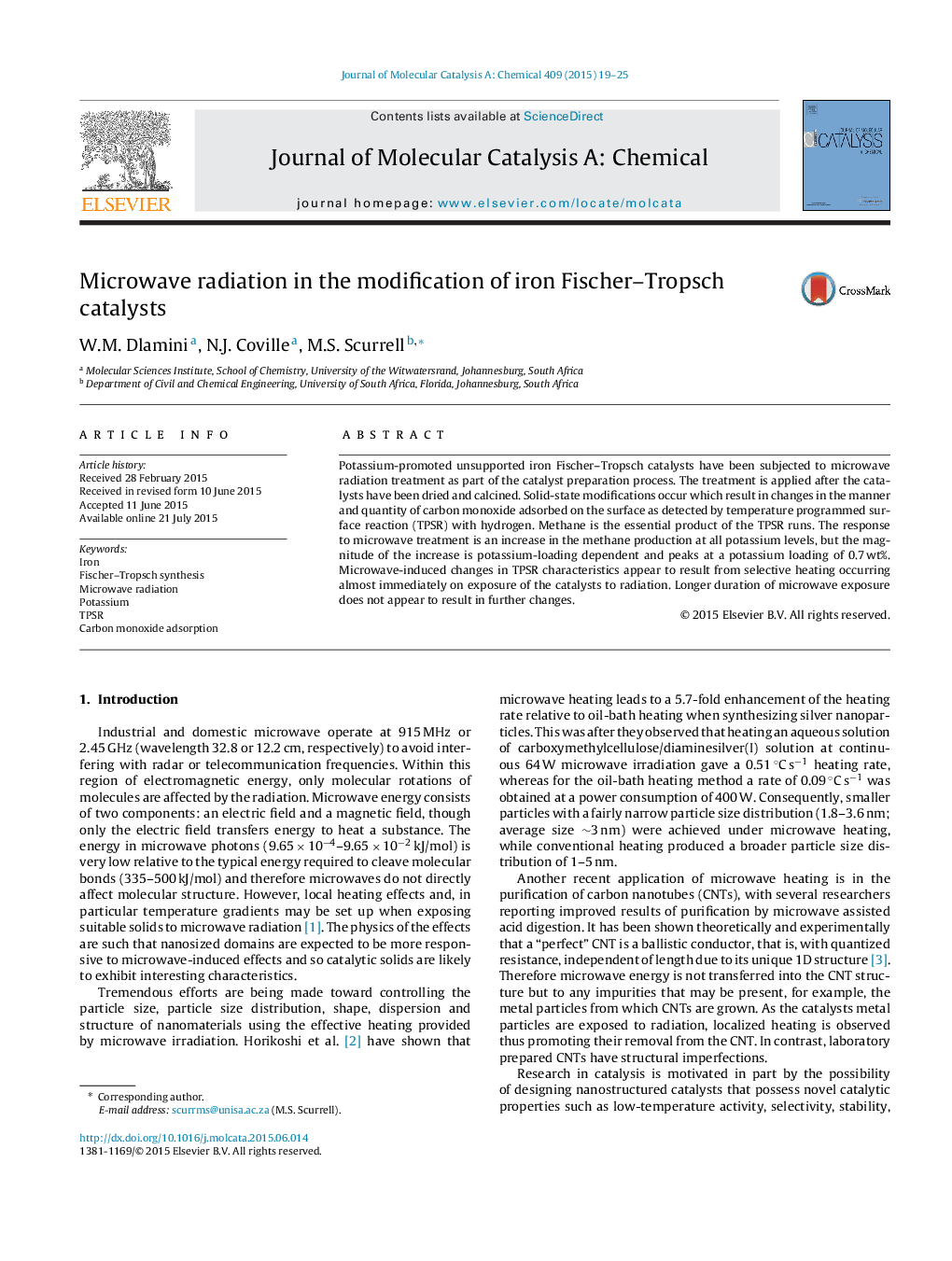| Article ID | Journal | Published Year | Pages | File Type |
|---|---|---|---|---|
| 64922 | Journal of Molecular Catalysis A: Chemical | 2015 | 7 Pages |
•Iron-based FTS catalysts can be modified by microwave treatment.•The quantity of adsorbed CO converting to methane can thereby be increased.•The microwave effect is sensitive to the level of potassium promotion.•Enhanced hydrocarbon is seen at all K levels.•The enhancement is optimal at intermediate K levels.
Potassium-promoted unsupported iron Fischer–Tropsch catalysts have been subjected to microwave radiation treatment as part of the catalyst preparation process. The treatment is applied after the catalysts have been dried and calcined. Solid-state modifications occur which result in changes in the manner and quantity of carbon monoxide adsorbed on the surface as detected by temperature programmed surface reaction (TPSR) with hydrogen. Methane is the essential product of the TPSR runs. The response to microwave treatment is an increase in the methane production at all potassium levels, but the magnitude of the increase is potassium-loading dependent and peaks at a potassium loading of 0.7 wt%. Microwave-induced changes in TPSR characteristics appear to result from selective heating occurring almost immediately on exposure of the catalysts to radiation. Longer duration of microwave exposure does not appear to result in further changes.
Graphical abstractFigure optionsDownload full-size imageDownload high-quality image (68 K)Download as PowerPoint slide
